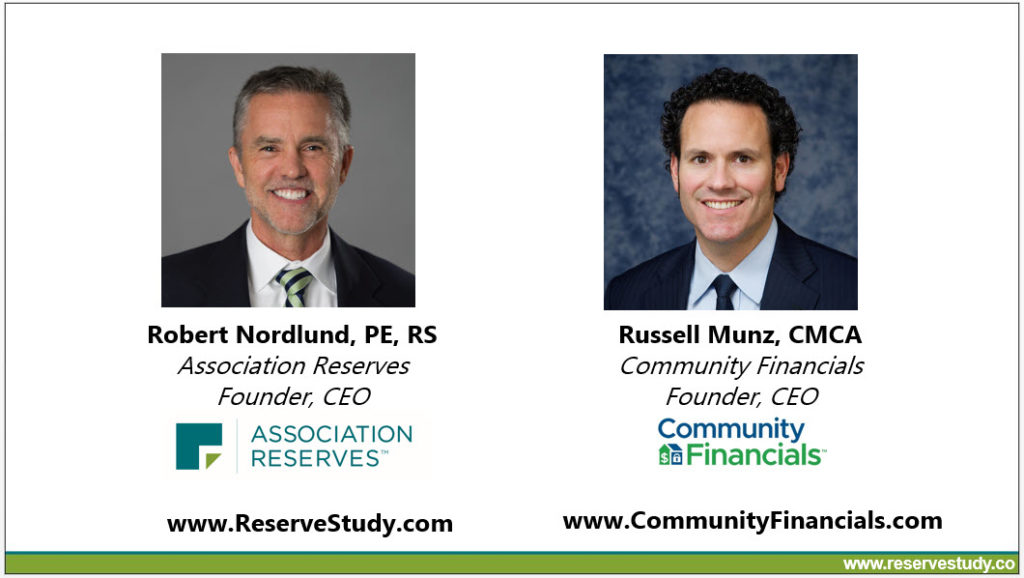Yesterday I was a guest presenter on Association Reserve’s Webinar series. The topic: Is Your HOA/ Condo Association Fiscally Responsible? Over the course of 2 sessions yesterday we had some great questions from the audience that I wanted to share. Additionally, at the bottom of this post is a link to watch one of the webinars in its entirety.

The following are 10 of the best questions and my answers so you can learn from them:
1. In the end, is the board responsible for fulfilling a fiduciary duty to the association (including holding management accountable for carrying out all financial duties per the statutes) or can the board delegate all duties the manager to avoid liability and breach of duty
A: The board can delegate the duties but it can’t delegate their responsibility. The board needs to know enough to manage the manager and claiming that you did not know is not a viable legal defense. I would also recommend that the board make sure that they review their Directors and Officer’s insurance policy and the Manager’s Errors and Omissions coverage with the association’s insurance agent to make sure they are adequate (often times they are not) and make sure they offer real protection for the board from liability.
2. Is it a requirement for COA’s to maintain accrual based books or can they be cash basis?
A: Some states have regulations on the operation of the association but I don’t believe they have requirements for accrual accounting. I know many smaller associations that use a cash basis. That being said the industry typically recommends accrual based accounting.
3. Do you recommend sharing the financial reports with just the BOD or the membership?
A: I recommend sharing the year end income and expense report and the balance sheet with membership at a minimum. Some states even require this. This should be done in a timely way at the end of the fiscal year typically within 30-60 days. They can be mailed or posted to an online owner’s portal or access restricted community website. The only report that you cannot share with membership is the aged delinquencies – many states have laws around protecting the privacy of this information.
4. What if you have aged owner balance over 90 Days?
A: You need to make this the highest priority at the next board meeting. You need to review your collection policy, if you don’t have one come up with one, and then notify owners of the new policy (this will help going forward and put past due owners on notice of a change in your approach to handling delinquencies). Then work with a collection attorney or collection agency to help go after these past due owners. Here is a sample collection policy you can review with the board and your attorney. For additional info here is an article I wrote for CAI: “6 Steps to Improve your Collection Practices Before the Next Recession”.
5. How do you feel about turning off services: garbage pick-up, gate access, etc.?
A: I assume this is if an owner is delinquent. If that is the case you will have to check with your governing documents and your association attorney on what is allowed. I have seen where a delinquent owner can’t vote in community elections and loses the privilege of using community amenities but you can’t limit access to their house (gate access) and vital services like garbage pick-up.
6. Do you need to amend your condominium documents in order to report to the credit bureau?
A: I haven’t seen a case where this was necessary but it’s always a good idea to consult your association’s attorney. Usually, the board signs a short agreement for the service. To read more here is a post: How Does Reporting Delinquent HOA and Condo Owners to a Credit Rating Agency Work?
7. Do you recommend any financial management software that allows invoices to be reviewed by all board members prior to the treasurer and president approving the invoices?
A: Some HOA / Condo industry specific software provides this invoice approval functionality within the software (Caliber and Tops Software, etc.) but these systems are often more complex than a board can use on their own (designed for management company with trained accounting staff). However, I find that these built in systems are not as user friendly or robust as using a tailored accounts payable software like Strongroom. This system though is mostly used by management companies or a company like Community Financials and paired with other accounting software to handle the financial management of the association. This system allows for a manager (if you have one) and 2 board members to approve invoices prior to payment and allows for others to have view only access. You can read more about it in this blog on Accounts Payable Best Practices here.
8. What steps can we use when a Property Management Company handles the issuance of the checks?
A: You have a few choices if your manager doesn’t have an online system like the one outlined above. 1) you can require that the manager show you the invoices to approve prior to them paying – this can be done by manager emailing you scanned invoices and you reply approved or they can mail or come over to review the paper invoices in person and you initial and date them. 2) another way is to require a check that has two signatures on it – if you go this route make sure you have printed on the check “two signatures required” as otherwise if there is only one signature it will still be valid.
9. Is there an independent process or organization that validates and certifies property management processes for customer assurance?
A: In a handful of states there is regulations for operating community associations and for managers. However even in these states there is limited oversight to validate processes. If this is of interest to you may consider hiring an independent professional manager with a designation to go thru your processes and provide suggestions. You can ask your local Community Association Institute chapter for a recommendation or send me a message and I’ll see if I can recommend someone.
10. What suggestions do you have if the management company refuses to provide 1/2 of the financial statements over a 2-year period?
A: First if the management company has not provided financial statements in a timely way and is only providing limited financials this is a red flag – it shows 1) they do not know accounting, don’t have proper staff and/ or systems in place, or possible wrongdoing. Second, if they have provided all the reports outlined in your management agreement on time all along but you are not getting the historical/past statements you should have your attorney make a written request to help get the documents. In either case the 2 main reasons communities change management is due to 1) poor financials or 2) poor communication / response time (or both). So you may want to look into alternatives. That being said if you love your manager but they are just poor at financials we see where a community breaks up the physical management from the financial management for better expertise and also checks and balances. You can read more about this arrangement in this blog post.
Thanks for taking the time to learn more about Fiscal Responsibility for your Homeowners Association or Condo Community and hope that we’ve answered some of your questions.
Lastly, if you want to watch the webinar you can click on the video link here.


